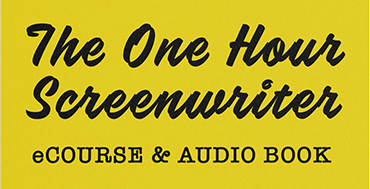Shutter Island – Day Twenty One – #40movies40days


I finally caught up with Shutter Island last night. I wasn’t interested in the movie when it was released. Something about the trailer turned me off or was irritating. I can’t remember what that was. But I’m preparing for my Thriller Workshop in New York City and thought I should see it. I’m glad I did.
I liked the movie a lot. It’s a classic Power of Truth story asking: Who can I trust? Do I see what I think I see? What’s really going on? What does it all mean? ** SPOILERS AHEAD **
Shutter Island reminded me very much of Memento. In both films a man’s wife dies in the aftermath of a violent act. Each man constructs an elaborate narrative about what happened and who is responsible. Each man searches for his wife’s “killer.” After the shock of being confronted with the truth, each man retreats back to his fictional narrative.
The film is an interesting follow up to What The Bleep Do We Know. That film and my interpretation of it argues:
I am who I say I am. I am the story I tell about myself– to me and to others.
I chose my story and I continue to chose it consciously or unconsciously every day.
Events in the past do not create or destroy my character– my reaction to, attitude toward and interpretation of those events is what creates or destroys my character.


At the end of Memento, the protagonist (Guy Pearce) chooses to kill the only man who has the key to his wife’s killer. He can’t face his role in her death. The truth is too painful so he “makes up his own truth”. He cannot forgive himself and resolve his loss. So he creates a mystery he can never solve.
Reality is the story we choose to tell about ourselves and our world. Power of Truth characters struggle to define what reality they can accept and what reality they choose to ignore (or to hide). Although they seek the truth, the person most often lying to them is themselves.
The protagonists in Shutter Island and Memento choose a story that fictionalizes and twists the truth. Each would rather be insane/lobotomized/lost in a haze of distorted memories rather than face responsibility for the death that haunts him.
Shutter Island is a fascinating psychological thriller that unwraps the protagonist’s psyche in a slow tortuous fashion. The surprise twist is extremely satisfying. Although the protagonist is judged insane, he makes a choice that proves his sanity in that he is fully conscious of what he’s doing.




Create a visual map for a character’s emotional journey. Pull stories from character rather from rote story structure beats. Some of the largest international media companies, use this in story and character development.


A clear concise guide for writers and producers to have by their side as they embark on a project. It gives a really vital reminder of what is key for story success.

No comment yet, add your voice below!